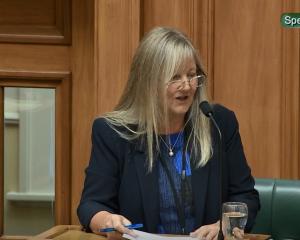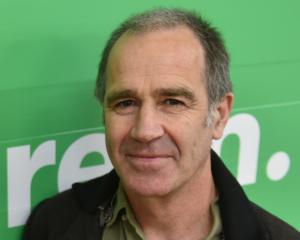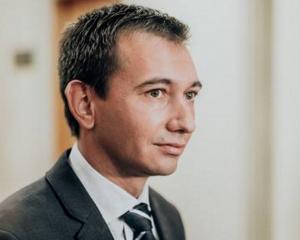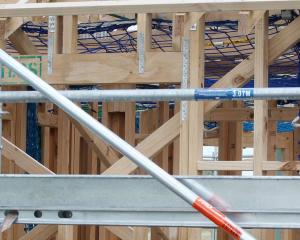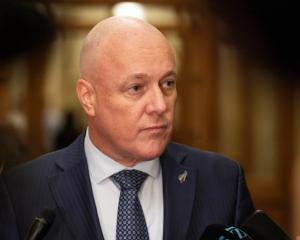
Prime Minister John Key has just flown out of Iraq after a secret visit to the New Zealand troops at Taji Military Camp - a dramatic two days in a place he described as a "god-damn awful place".
Mr Key's trip to meet the New Zealand trainers and troops in Taji was kept under wraps until after he left Iraq early this morning for security reasons. The trip was nearly jeopardised by dust storms grounding aircraft. They delayed his visit by a day and almost left him marooned in the military camp in one of the world's hottest conflict zones for an extra night.
The trip was months in the planning and a small group of media including the New Zealand Herald accompanying him were required to keep it confidential until he had left the war zone.
During the visit Mr Key and his entourage, as well as the media, were protected by a team of elite SAS troops, who have not been deployed in Iraq.
About 106 New Zealand troops are based alongside 300 Australian personnel at Taji to train Iraq security forces. Mr Key is the first leader of the coalition countries based at Taji to visit the base since the United States moved back in to help Iraq battle Islamic State in 2014.
Mr Key visited to see first hand the conditions the troops were working in and fulfil his promise to visit when he announced that deployment in February this year.
He described Camp Taji - a flat, dusty place built of concrete in the middle of the desert - as a "god damned awful place."
"It's sort of beige and it's a tough operating environment. And our people are out there working - when they start telling you it's 40 degrees and 'cool' - well, what does hot look like?"
Temperatures were about 40 degrees Celsius during Mr Key's visit but a few weeks ago were peaked above 55C.
He said his visit had reassured him about the safety of the troops in the compound. "A successful operation for us is not just upskilling the Iraqi armed forces, it's getting all of our men and women home in one piece, safe and sound."
The troops only leave the base by air because of the risk of improvised explosive devices in nearby territories and on the road to Baghdad. Only 16 of the 106 at Taji are trainers. About half of the total number are there to protect those trainers while the remainder are logisitics and medical staff.
Mr Key said the decision to deploy was based on advice from the Ministry of Defence, but it was he who had to make the call.
"As the person who signs off at a very personal level on whether this happens or not, I feel very intimately involved in this operation. I take personal responsibility for what happens out here and so it's important for me to be able to see it first hand."
It is Defence Force policy not to reveal the names or photos of those serving, but as the Defence Force tries to show it has become more transparent after criticism of its secrecy compared to Australia, media were able to interview staff at the base including trainers and support staff
Those troops the Herald spoke to were about six months into their deployment and had about a month to go. All had volunteered for the posting and said they were pleased to be back in action after the gap since New Zealand withdrew most of its reconstruction team from Bamiyan in Afghanistan.
During his time in Iraq, Mr Key met with the New Zealand soldiers, ate with them in the D-FAC (dining facility/ mess) and watched them training a group of Iraqi soldiers who have just begun their six-week training course. He also spoke briefly to some of the Iraqi commanders.
Mr Key said what he saw on his visit had reinforced his decision to send the troops. "I felt very strongly about the mission before I sent our men and women here but I feel very vindicated in what we are doing."
The New Zealand troops had integrated well with the Australians and he believed the training was making a difference. "You can see they're taking a very localised view of it and not trying to impose a New Zealand way of doing things, not trying to impose our culture on the Iraqi forces. They are using a respectful way of training them."
However, he did not believe it would justify extending the deployment beyond the two-year limit he had set.
"Quite frankly this is likely to be a troubled part of the world for a very long period of time - we could arguably stay here forever. But this isn't New Zealand's engagement. I think New Zealand has a job to do here. We're doing it. I think there should be an exit point and that exit point at about two years feels about right to me."
Meeting with Iraqi leaders
Before travelling to Taji, Mr Key also met with Iraq's President Fuad Masum and Prime Minister Haider al-Abadi during a day in Baghdad. He said while they knew the challenges Islamic State presented, they were confident of winning.
Mr al-Abadi told Mr Key he was more concerned about freedom fighters going to Iraq to fight with Isil than Iraqis joining the group.
After a visit to the medical centre, complete with an operating theatre in a tent, Mr Key was given his formal welcome in the 36C desert heat. The temperatures soar to above 60C in June and July.
The Army performed the Tumatauenga in which the Task Force Taji patch - a badge featuring an entwined silver fern and boomerang - was laid down as the wero. Most of the 300 Australian troops in the Task Force Taji group also came to watch the occasion.
Although New Zealand and Australia are not formally an Anzac force, they work closely together and the Taskforce Taji team has a shield featuring an intertwined silver fern and boomerang.
Mr Key spoke to Australians and New Zealanders afterwards, saying it was clear they were an Anzac force in spirit, even if not in uniform.





